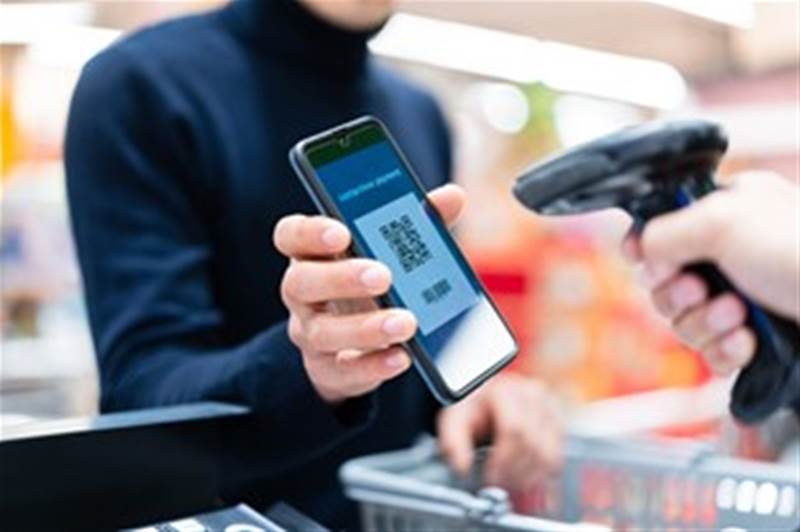Many brick-and-mortar stores in Southeast Asia bore the brunt of the pandemic as lockdown restrictions pushed shoppers online.
However retail consumers in the region are not missing the regular in-store shopping experience as anticipated.
While online shopping is still fairly nascent in Southeast Asia, a discernible trend from the pandemic was that retail innovations such as AI and VR are opening up new opportunities for the retail sector to create meaningful interactions with consumers, a VMware Digital Frontiers 3.0 Study, conducted at the end of 2020, surmised.
The study, which surveyed the behaviours, preferences and attitudes towards digital services and experiences of 1,000 consumers from Southeast Asia (Singapore, Malaysia, Indonesia, Thailand and the Philippines), the US, UK Germany and France, found that 41% of Southeast Asian respondents are not missing regular shopping in-store as much as they thought they would.
In Thailand and Singapore, the numbers were higher with 46% of Thai and 43% of Singaporean respondents sharing the same sentiment.
About three-quarters or 77% of respondents polled were below the age of 44 years, while 23% were 45 years and above.
Recent research by Forrester also discovered that offline retailers that latched onto digital fared well. Southeast Asia emerged as the fastest- growing online retail market globally, registering an increase of 53% in 2020 to reach $50 billion, said Forrester.
Southeast Asia has some way to go as it accounts for just two per cent of global online retail. However, by 2025, Forrester predicted that the region’s online’s share of total retail sales is forecasted to reach 15%.
Spurred by the pandemic, the region added 32.5 million online buyers in 2020, the highest number of new users ever in a single year. This was 17.5 million more users than in Forrester’s pre-pandemic original forecast for 2020.

Southeast Asia grew 53% last year to reach $50 billion
The pandemic has redefined retail, probably forever
Sachin Shridhar, Enterprise Sales Leader, Strategic Pursuits at VMware, Singapore, said the pandemic has redefined retail for all countries across Southeast Asia with consumers preferring a more meaningful and engaging digital-first retail services and experiences
“Fast-evolving consumer demands has accelerated the digitalisation of the retail industry – while this might have been a slow run marathon before the pandemic, it is certainly a purposeful sprint.”
Immersive, sustainable digital retail services and offerings could present a silver lining for Southeast Asia’s retail industry, but a robust digital foundation will be key in enabling the next wave of retail innovations, he said.
He added that the pandemic is enabling emerging technologies such as AI and VR. They are enabling new, immersive and more innovative experiences for consumers which would include the use of virtual reality to see what an item may look like in a space and how different clothes would look on a consumer among others.
“These evolving consumer demands illustrate the need for retailers to build stronger digital capabilities to keep pace and remain relevant in the digital retail economy."
“Businesses are facing their ‘sink or swim’ moment – one where they need to leverage innovative technologies such as cloud and modern apps to redefine how they connect digitally with their consumers, or risk losing them to competitors,” said Shridhar.
In 2022, retailers must continue to reimagine their businesses for the new age of retail, from evolving as platforms and transforming their store experiences by integrating online and offline to monetising data, investing in financial services products and optimising return costs by focusing on a better customer experience.
- Guy Elliott, Retail Industry Lead, Publicis Sapient, EMEA and APAC
In its 2022 Retail Guide to Next report, digital consulting company Publicis Sapient said the future winners of retail will be those that build a connected ecosystem of related services that customers can engage with through one seamless experience.
"As retailers adapt to changing consumer behaviours and strive for transformational growth, it is critical for them to consider how they incorporate new customer needs and expectations into their current business models," said Guy Elliott, Retail Industry Lead, Publicis Sapient, EMEA and APAC.
Over the last 18 months, retailers have faced lockdowns and restrictions, resulting in a surge in e-commerce that has changed consumer expectations and the role of physical stores. Publicis Sapient research found that 56% of global respondents and 61% of APAC consumers now shop online at least once as a week.
Physical brick-and-mortar stores, however, are and will still be relevant, the Publicis Sapient report said, and will continue play a huge role in the retail landscape by allowing consumers to experience a brand in-person.
Having a seamless integration of online and offline will also be critical to retailers’ success in 2022 and beyond.
"In 2022, retailers must continue to reimagine their businesses for the new age of retail, from evolving as platforms and transforming their store experiences by integrating online and offline to monetising data, investing in financial services products and optimising return costs by focusing on a better customer experience,” said Elliot.










